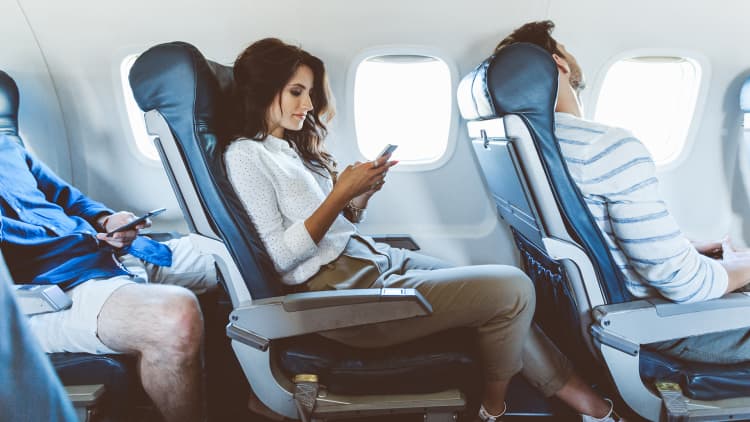Many of us this summer will fly off on holiday for a well-deserved break. It's more than likely that you spent hours on the internet researching flight deals, trying to figure out an airfare pricing system that seems completely random.
Fees appear to fluctuate without reason and longer flights aren't always more expensive than shorter ones. But what seems random is actually airlines' dynamic pricing, using a strategy called airline revenue management.
It works in real time with one aim — to boost revenues. The decisions are being made by an algorithm that adjusts fares by using information including past bookings, remaining capacity, average demand for certain routes and the probability of selling more seats later.
The evolution of airfare pricing
It's a far cry from the first years of commercial aviation when the industry was a tightly regulated marketplace. Most international routes were operated by a single national carrier and the lack of choice resulted in uncompetitive fares for consumers.
Deregulation, however, changed all that, removing government controls over routes, fares and market entry for new airlines.
Critics say there was too much competition in the first years after deregulation. Airlines lost a lot of money, forcing them to merge and became more dominant. They say this changed the industry from a regulated cartel to an unregulated cartel. In the U.S., just four airlines control 68 percent of the domestic airline capacity.
But this hasn't halted the demand in air travel.
The number of airline passengers across the globe has continued to grow, particularly in the last 10 years, when the amount of people choosing to fly skyrocketed by nearly 1.8 billion.
How airlines price today
Today, airlines price tickets "as much as the customer and market will bear," according to consultant and former airline planning executive Robert W. Mann.
Airlines also profile their customers to help them adjust prices.
This often means placing passengers into one of two groups: leisure or business. And the way each group is priced is very different.
Leisure passengers usually book months in advance, so airlines tend to start the prices for these seats relatively high. It then adjusts the prices according to market response.
For typical business routes, airlines will start with low prices to fill a minimum capacity, then increase prices steeply as corporate passengers tend to book last minute.
What ticket prices aren't actually focused on is a ticket's combined cost, including taxes and fuel. According to Mann, it's technology that determines the price you see online instead.
"Technology has allowed some airlines to create a 'basic economy fare' with limited amenities to compete with minimal service, low cost carriers," he said.
That's because the lower fare allows full-service carriers to appear on the first page of search engines such as Google Flights.
But it's not just airlines that are using artificial intelligence (AI) technology to their advantage.
Consumers now have access to sites that monitor fares, using their own algorithms and past data to predict the lowest price a seat will reach, then alert their customers.
The threat airfare search websites pose to airlines' dynamic pricing system even saw United Airlines suing the website Skiplagged, which helps passengers find loopholes for cheaper tickets.



